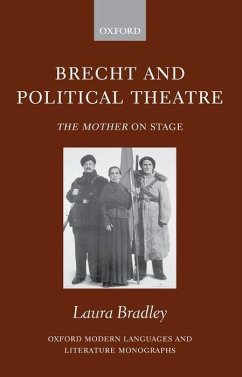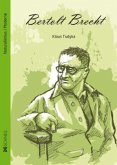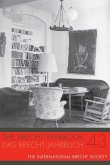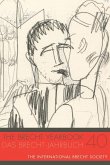This study focuses on The Mother, Bertolt Brecht's most overtly political play and the only play which he staged in the Weimar Republic. Through detailed analysis of archival material, Bradley explores how Brecht's theatre practice developed and how it has subsequently been received and challenged by other directors, in and beyond Germany.
This production history of The Mother provides substantial new insights into Bertolt Brecht's theatre and drama, his impact on political theatre, and the relationship between text, performance, and politico-cultural context. As the only play which Brecht staged in the Weimar Republic, during his exile, and in the GDR, The Mother offers a unique opportunity to compare his theatrical practice in contrasting settings and at different points in his
career. Through detailed analysis of original archival evidence, Bradley shows how Brecht became far more sensitive to his spectators' political views and cultural expectations, even making major tactical concessions in his 1951 production at the Berliner Ensemble. These compromises indicate that his 'mature' staging
should not be regarded as definitive, for it was tailored to a unique and delicate situation.
The Mother has appealed strongly to politically committed theatre practitioners both in and beyond Germany. By exploiting the text's generic hybridity and the interplay between Brecht's 'epic' and 'dramatic' elements, directors have interpreted it in radically different ways. So although Brecht's 1951 production stagnated into an affirmative GDR heritage piece, post-Brechtian directors have used The Mother to promote their own political and theatrical concerns, from
anti-authoritarian theatre to reflections on the legacies of state Socialism. Their ideological and theatrical subversion have helped Brecht's text to outlive the political system that it came to uphold.
This production history of The Mother provides substantial new insights into Bertolt Brecht's theatre and drama, his impact on political theatre, and the relationship between text, performance, and politico-cultural context. As the only play which Brecht staged in the Weimar Republic, during his exile, and in the GDR, The Mother offers a unique opportunity to compare his theatrical practice in contrasting settings and at different points in his
career. Through detailed analysis of original archival evidence, Bradley shows how Brecht became far more sensitive to his spectators' political views and cultural expectations, even making major tactical concessions in his 1951 production at the Berliner Ensemble. These compromises indicate that his 'mature' staging
should not be regarded as definitive, for it was tailored to a unique and delicate situation.
The Mother has appealed strongly to politically committed theatre practitioners both in and beyond Germany. By exploiting the text's generic hybridity and the interplay between Brecht's 'epic' and 'dramatic' elements, directors have interpreted it in radically different ways. So although Brecht's 1951 production stagnated into an affirmative GDR heritage piece, post-Brechtian directors have used The Mother to promote their own political and theatrical concerns, from
anti-authoritarian theatre to reflections on the legacies of state Socialism. Their ideological and theatrical subversion have helped Brecht's text to outlive the political system that it came to uphold.









